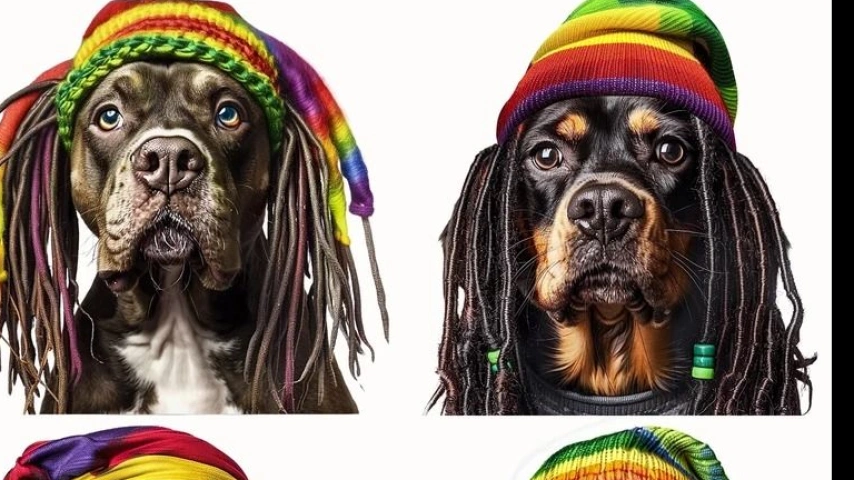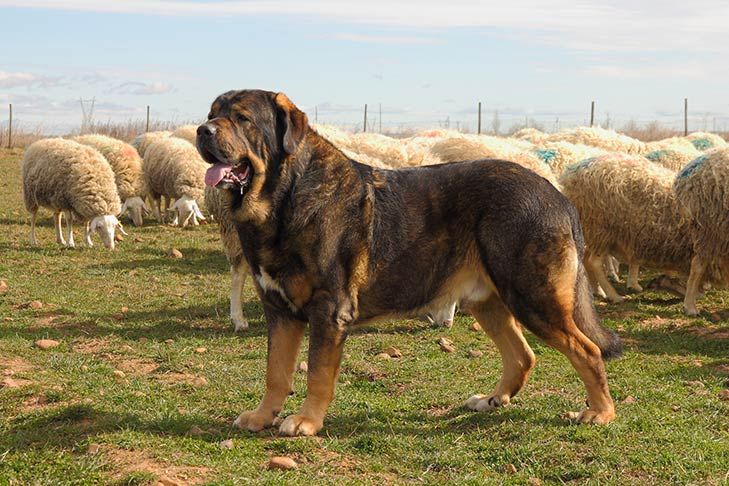Auto / Detail
Beyond the Beach: Jamaica's Dog Lovers
Jonathan Bennet | 29 October 2024 | 18:10
Jamaica, renowned for its vibrant culture, stunning beaches, and delicious cuisine, is also home to a thriving dog-loving community. Beyond the tourist-filled resorts and bustling cities, a heartwarming story unfolds: the deep connection between Jamaicans and their canine companions.
From the historic roots of dogs on the island to the modern-day love affairs between humans and their furry friends, this article explores the unique bond that exists between Jamaica and its canine inhabitants.

As you delve into the heart of Jamaica, you'll discover a diverse tapestry of dog breeds, each with its own fascinating history and unique characteristics. From the resilient Jamaican Dog to the loyal Rastafarian Dogs, these canine companions have played significant roles in the island's culture and society.
Join us on a journey to discover the heartwarming stories of Jamaica's dog lovers, the challenges they face, and the unwavering spirit that unites them.
History of Dogs in Jamaica
The history of dogs in Jamaica is intertwined with the island's colonial past and its subsequent development as an independent nation. The first dogs to arrive in Jamaica were brought by the Spanish conquistadors who colonized the island in the 16th century. These dogs were likely a mix of breeds, including Mastiffs, Greyhounds, and Terriers, which were valued for their hunting and guarding abilities.

The Spanish used their dogs to hunt indigenous wildlife, such as iguanas and parrots, and to protect their settlements from attacks by hostile natives. However, the dogs also had a darker role to play. They were used to terrorize and intimidate enslaved Africans, who were brought to Jamaica to work on sugar plantations. The dogs were trained to attack and maim runaway slaves, reinforcing the brutal system of slavery.
Special Dogs of Jamaica
While Jamaica has a diverse dog population, there are a few breeds and types of dogs that are particularly noteworthy. One such breed is the Jamaican Dog, a small, mixed-breed dog that is often found in rural areas. The Jamaican Dog is thought to be descended from dogs that were brought to the island by slaves, and it has adapted to the tropical climate and rugged terrain of Jamaica.

These dogs are known for their intelligence, loyalty, and adaptability. They are often used as working dogs, helping farmers with tasks such as herding livestock and guarding property. Jamaican Dogs are also popular pets, and they are known for their affectionate and playful nature.
Another unique type of dog found in Jamaica is the Rastafarian Dog. These dogs are often associated with the Rastafari movement, and they are often given names with biblical significance. Rastafarian Dogs are typically large breeds, such as Rottweilers, German Shepherds, and Dobermans. They are prized for their loyalty and protective instincts, and they are often used as guard dogs.
One famous Jamaican dog is a Rottweiler named Marley, who is named after the legendary reggae musician Bob Marley. Marley the dog is a beloved mascot of the Jamaican reggae community, and he is often seen at music festivals and other events.
Jamaican dogs are celebrated in the country's culture in a variety of ways. They are often featured in art, music, and literature, and they are also the subject of many folklore tales. Jamaican dogs are seen as symbols of loyalty, resilience, and adaptability, and they are a source of pride for many Jamaicans.
The Future of Jamaican Dogs
The future of Jamaican dogs is uncertain, as the country faces numerous challenges that could impact the welfare of its canine population. One major concern is the growing number of stray dogs, which can pose a public health risk and lead to conflicts with humans. The government and animal welfare organizations are working to address this issue through programs such as spay and neuter initiatives and rehoming efforts.
Another challenge facing Jamaican dogs is the lack of adequate veterinary care. Many dogs in Jamaica do not have access to basic veterinary services, such as vaccinations and treatment for illnesses and injuries. This can lead to suffering and death for many animals. Efforts are being made to improve veterinary care in Jamaica, but more needs to be done to ensure that all dogs have access to the care they need.

Despite these challenges, there is hope for the future of Jamaican dogs. The country has a growing number of animal welfare organizations that are working to improve the lives of dogs. These organizations are raising awareness about animal welfare issues, providing shelter and care for homeless dogs, and advocating for stronger animal welfare laws.
Additionally, the increasing popularity of dog ownership in Jamaica is a positive sign. As more people adopt dogs as pets, there is a greater demand for quality dog food, veterinary care, and training. This can lead to increased investment in the dog industry and improved conditions for dogs in Jamaica.
Overall, the future of Jamaican dogs is uncertain, but there is reason to be hopeful. With the continued efforts of animal welfare organizations, the government, and individual dog owners, it is possible to create a brighter future for the country's canine population.
Related
Popular
-

-

A Pawsitive History: Dogs of Nuremberg
09 November 2024 -

-

Beyond the Beach: Jamaica's Dog Lovers
29 October 2024 -

